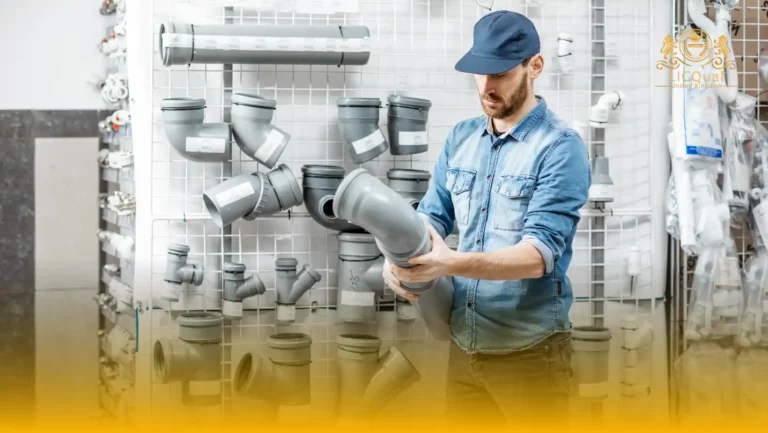The LICQual Level 3 Diploma in Endocrinology (Dip E) is a specialised qualification designed for healthcare professionals who wish to deepen their understanding of endocrine disorders and improve their clinical expertise. This diploma is not intended for fresh candidates; it is aimed at experienced learners seeking to enhance their career prospects, expand their professional knowledge, and strengthen their Continuing Professional Development (CPD).
Endocrinology plays a vital role in modern healthcare, focusing on the diagnosis, treatment, and management of hormone-related disorders such as diabetes, thyroid conditions, adrenal and pituitary disorders, and metabolic syndromes. With the growing prevalence of endocrine diseases globally, there is a significant demand for skilled professionals capable of providing evidence-based care, implementing treatment plans, and contributing to improved patient outcomes. This qualification equips learners with the clinical, diagnostic, and management skills required to excel in endocrine care across hospital, community, and specialist settings.
Centres delivering the LICQual Level 3 Diploma in Endocrinology (Dip E) are expected to maintain high standards of training and learner support. This includes employing competent and qualified teaching staff, providing access to up-to-date learning resources, clinical case studies, and relevant materials, as well as ensuring a structured approach to assessment and quality assurance. Learners benefit from a comprehensive learning environment that fosters professional growth, clinical competence, and ethical practice.
Completing this diploma enables learners to develop specialist skills in endocrinology, enhancing their professional credibility and opening pathways for career progression, academic advancement, and contribution to patient-centred care in the healthcare sector.
Course Overview
Qualification Title
LICQual Level 3 Diploma in Endocrinology (Dip E)
Total Units
6
Total Credits
60
GLH
240
Qualification #
LICQ2200900
Qualification Specification
To enroll in the LICQual Level 3 Diploma in Endocrinology (Dip E), applicants must meet the following criteria:
|
Qualification# |
Unit Title |
Credits |
GLH |
|---|---|---|---|
|
LICQ2200900-1 |
Fundamentals of Endocrinology |
10 |
40 |
|
LICQ2200900-2 |
Anatomy, Physiology, and Pathophysiology of Endocrine Systems |
10 |
40 |
|
LICQ2200900-3 |
Clinical Assessment and Diagnostic Methods in Endocrinology |
10 |
40 |
|
LICQ2200900-4 |
Management of Common Endocrine Disorders |
10 |
40 |
|
LICQ2200900-5 |
Pharmacological and Non-Pharmacological Interventions in Endocrine Care |
10 |
40 |
|
LICQ2200900-6 |
Public Health, Ethical Practice, and Professional Development in Endocrinology |
10 |
40 |
By the end of this course, learners will be able to:
Unit 1: Fundamentals of Endocrinology
- Understand the scope and importance of endocrinology in healthcare.
- Recognise common endocrine disorders and their impact on patient health.
- Explain the principles of patient-centred care in endocrine practice.
- Analyse the role of healthcare professionals in endocrine disease management.
Unit 2: Anatomy, Physiology, and Pathophysiology of Endocrine Systems
- Describe the structure and function of major endocrine glands.
- Explain hormone production, regulation, and action within the body.
- Analyse pathophysiological changes in common endocrine disorders.
- Understand interactions between endocrine systems and other body systems.
Unit 3: Clinical Assessment and Diagnostic Methods in Endocrinology
- Conduct effective patient history taking and clinical examinations related to endocrine conditions.
- Interpret laboratory tests, imaging, and hormone assays in endocrine diagnosis.
- Apply evidence-based approaches to differential diagnosis of endocrine disorders.
- Evaluate diagnostic tools for monitoring disease progression and treatment outcomes.
Unit 4: Management of Common Endocrine Disorders
- Differentiate between acute and chronic endocrine conditions.
- Develop treatment plans for disorders such as diabetes, thyroid diseases, adrenal and pituitary disorders.
- Recognise the role of lifestyle interventions, patient education, and rehabilitation in endocrine care.
- Apply clinical guidelines to improve patient outcomes in endocrine practice.
Unit 5: Pharmacological and Non-Pharmacological Interventions in Endocrine Care
- Explain the mechanisms, indications, and side effects of common endocrine medications.
- Evaluate non-pharmacological approaches such as diet, exercise, and lifestyle management.
- Develop integrated care plans combining pharmacological and non-pharmacological strategies.
- Monitor patient responses and adjust treatment plans accordingly.
Unit 6: Public Health, Ethical Practice, and Professional Development in Endocrinology
- Explain the principles of public health relevant to endocrine disease prevention and management.
- Analyse ethical considerations, patient confidentiality, and informed consent in endocrine practice.
- Demonstrate professional standards, reflective practice, and adherence to CPD principles.
- Evaluate strategies for improving patient care and outcomes through evidence-based practice.
The LICQual Level 3 Diploma in Endocrinology (Dip E) is designed for healthcare professionals, medical graduates, and allied practitioners who want to specialize in the diagnosis, treatment, and management of hormone-related disorders. This internationally recognized diploma is ideal for those seeking CPD accreditation, career advancement, and flexible online training that prepares them to deliver evidence-based care for patients with diabetes, thyroid disorders, adrenal dysfunction, and other endocrine conditions.
1. Medical Doctors and Physicians
- Strengthen diagnostic and treatment skills in endocrinology
- Gain advanced knowledge of diabetes, thyroid, and adrenal disorders
- Apply evidence-based approaches to endocrine care
- Improve patient outcomes with specialized training in hormone management
- Enhance professional credibility with an accredited diploma
2. Nurses and Clinical Practitioners
- Develop expertise in managing patients with endocrine conditions
- Learn patient-centered care strategies for diabetes and thyroid disorders
- Expand clinical scope with a Diploma in Endocrinology (Dip E)
- Access CPD-accredited training for career progression
- Gain confidence in supporting multidisciplinary healthcare teams
3. Allied Health Professionals
- Suitable for dietitians, pharmacists, and laboratory technologists
- Understand the role of nutrition and medication in endocrine health
- Support patients with long-term hormonal and metabolic conditions
- Strengthen interprofessional collaboration in healthcare delivery
- Add a specialized qualification to enhance career opportunities
4. Medical Graduates and Postgraduate Students
- Build a strong foundation in endocrinology for future specialization
- Gain a competitive edge in postgraduate medical applications
- Access flexible online learning while continuing clinical rotations
- Learn from expert-led modules aligned with international standards
- Earn a diploma that strengthens both academic and professional profiles
5. Public Health Specialists and Researchers
- Understand the global impact of endocrine disorders on healthcare systems
- Gain insights into prevention, screening, and disease management strategies
- Learn about population-level interventions for diabetes and thyroid health
- Strengthen leadership skills in public health policy and planning
- Contribute to international health initiatives and endocrine research
6. International Healthcare Professionals
- Designed for global learners seeking UK-accredited qualifications
- Access flexible online study from anywhere in the world
- Gain recognition with an internationally respected diploma
- Learn best practices in endocrinology aligned with global standards
- Enhance employability in hospitals, clinics, and global health organizations
7. Professionals Seeking Career Advancement
- Ideal for those aiming to specialize in endocrinology
- Boost career growth with a niche medical qualification
- Gain recognition for advanced clinical expertise in hormone care
- Open pathways to leadership, teaching, and research roles
- Strengthen your CV with a Diploma in Endocrinology (Dip E)
Centres delivering the LICQual Level 3 Diploma in Endocrinology (Dip E) must adhere to high academic and professional standards to ensure learners receive exceptional training and achieve successful outcomes. Key requirements include:
- Qualified and Competent Staff – Trainers, assessors, and academic staff must hold recognised qualifications in endocrinology, medicine, nursing, or related healthcare fields, with proven clinical experience.
- Adequate Learning Facilities – Centres must provide classrooms, access to clinical or laboratory environments, and digital learning resources to support both theoretical and practical learning.
- Comprehensive Learning Resources – Up-to-date textbooks, journals, e-learning platforms, and clinical case studies relevant to endocrinology should be accessible to learners.
- Robust Assessment Systems – Centres must implement reliable and valid assessment methods, including written assignments, case studies, and practical evaluations, to ensure fair measurement of learner competence.
- Internal Quality Assurance (IQA) – A structured quality assurance process must be in place to maintain consistency and integrity in teaching, learning, and assessment.
- Learner Support Services – Academic guidance, mentoring, and professional support must be available to help learners achieve their full potential.
- Access to Technology and Digital Platforms – Centres should provide online learning tools, digital resources, and assessment platforms to enhance accessibility and flexibility.
- Compliance with LICQual Standards – Delivery must adhere to LICQual policies on quality assurance, safeguarding, equality, and inclusion.
- Accurate Record Management – Centres must maintain secure and accurate records of learner progress, assessments, and certification documentation in line with audit and verification requirements.
Assessment and Verification
All units within this qualification are subject to internal assessment by the approved centre and external verification by LICQual. The qualification follows a criterion-referenced assessment approach, ensuring that learners meet all specified learning outcomes.
To achieve a ‘Pass’ in any unit, learners must provide valid, sufficient, and authentic evidence demonstrating their attainment of all learning outcomes and compliance with the prescribed assessment criteria. The Assessor is responsible for evaluating the evidence and determining whether the learner has successfully met the required standards.
Assessors must maintain a clear and comprehensive audit trail, documenting the basis for their assessment decisions to ensure transparency, consistency, and compliance with quality assurance requirements.







